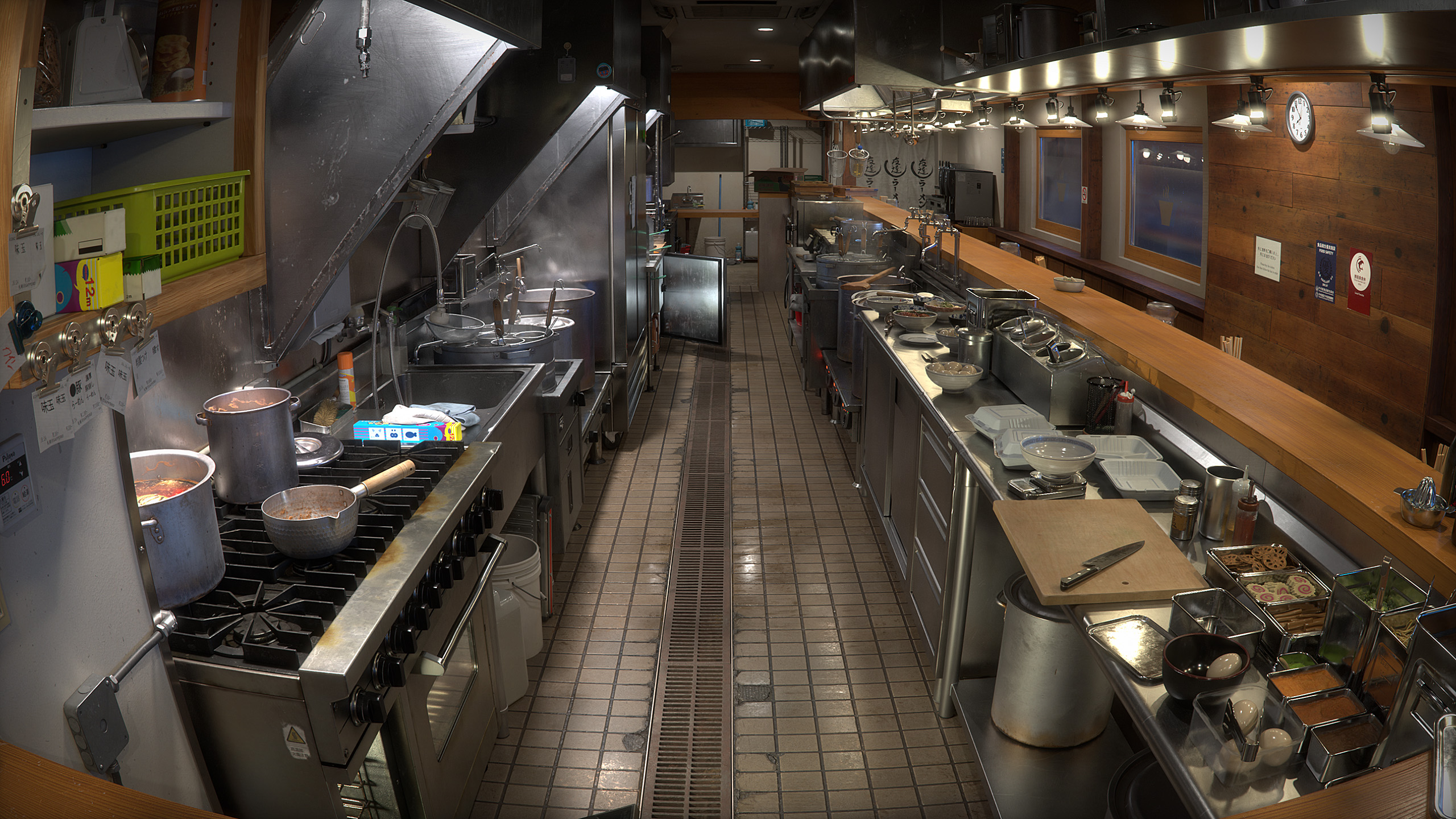Could this mind-blowing render show us what PC games will look like in 20 years?
Created via the Nvidia Omniverse platform

Prepare your jaw for drop mode at the sight of this rendered scene, which was shown off at Nvidia’s GTC virtual conference for 2022.
The scene of a Ramen shop and its kitchen was created by a team of designers at Nvidia, led by Team Green’s Senior Art & Design Director, Gabriele Leone, using the Nvidia Omniverse platform.
Leone points out: “Everything is modeled by hand, everything textured by hand in Substance Painter.”
I am always blown away by the talent of my team and am so lucky to work with them. We recently created a beautiful Ramen shop scene in @nvidiaomniverse for @NVIDIA's GTC.Everything modeled by hand, everything textured by hand in Substance Painter. Pure art. pic.twitter.com/Vt34eDpVvOMarch 23, 2022
The realism shown here is, quite frankly, scary, and the detail, textures and lighting all look, well, just as they would in real life.
Analysis: Simply stunning (but check out that scale)
Elsewhere on Twitter, Nvidia shows the scene off to greater effect as the camera pans around the environment (see below), and explains that as well as utilizing its Omniverse platform and Substance, other apps the team employed included Blender, Autodesk 3ds Max, Pixologic ZBrush, RizomUV and SideFX Houdini.
Learn how 10 artists spread across the world leveraged @NVIDIAOmniverse and creative apps like @Substance3D to create this photorealistic ramen shop while working simultaneously. 🍜This #GTC22 Session starts soon 👉 https://t.co/uEB0DUvXDG pic.twitter.com/QRmYdZw3HvMarch 24, 2022
Unsurprisingly, the reaction on Twitter is full of folks marveling at the photorealistic quality here being essentially indistinguishable from the real world, save for one mistake spotted by an eagle-eyed poster. Namely that the kitchen scale is registering a middling weight, but there’s nothing in it – a glitch in The Matrix, presumably (well, either that, or a broken scale).
In a couple of decades time, then, this could be what PC games look like (driven by some kind of monster GPU, naturally). And indeed we can only begin to imagine what it might be like to experience a VR world with this kind of realism on offer.
Get daily insight, inspiration and deals in your inbox
Sign up for breaking news, reviews, opinion, top tech deals, and more.
Darren is a freelancer writing news and features for TechRadar (and occasionally T3) across a broad range of computing topics including CPUs, GPUs, various other hardware, VPNs, antivirus and more. He has written about tech for the best part of three decades, and writes books in his spare time (his debut novel - 'I Know What You Did Last Supper' - was published by Hachette UK in 2013).